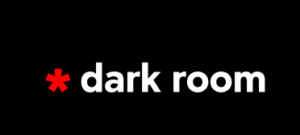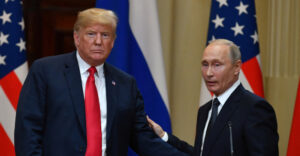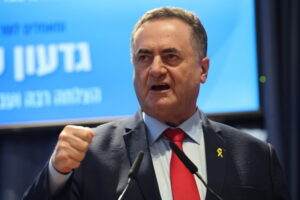Greetings. In the aftermath of Kimberly’s appointment, a remark she made in 2015 was published yesterday in the British media Independent, where she referred to the Greeks as “freeloaders” or something along those lines immediately after the heroic NO referendum. This statement sparked a new round of commentary. To be honest, if you’re an American somewhat unfamiliar with the subject and considering the country’s image at that time, it’s not entirely unreasonable, what the woman said. Anyway, the government spokesman Marinakis smoothed it over yesterday when asked about it, responding that “she didn’t say it in 2025, when she will come as an ambassador, but in 2015…” — when Varoufakis was our minister, I might add. I predict morning talk shows will have a field day if Kimberly decides to act extroverted in Athens, and the star of Kasselakis, already flickering, will set definitively, like those stars kids see in Christmas movies.
Mitsotakis’ Schedule
On a day-to-day note, K.M. made a lightning trip to Crete yesterday to inaugurate various local projects. The most interesting thing, I thought, was his comment to Regional Governor Arnaoutakis about his…lifelong election prospects, given that this is his fourth term (since 2010). Essentially, Mitsotakis wanted to reaffirm his decision to seek a third reelection, a development that might also relate to his choice for the President of the Republic, although by now the Dendias scenario seems definitively over.
Activity for the Presidency?
I keep asking and re-asking whether there has been any movement on the Presidency issue, but from K.M. himself, not a word has been heard by third parties. Now, whether he has discussed it with his inner circle, I don’t know, nor will I find out. However, a source you wouldn’t expect, as a thought, tossed a female name of a sitting minister my way. “What do you think?” I exclaimed, “what a great idea that is!”
Travel
Now, let me also tell you that the Prime Minister will most likely go to Lebanon on Monday (as the trip had been scheduled but was postponed) and return on the same day, because he has a heavy schedule ahead and a European Council meeting. That’s why, as I wrote to you yesterday, he got annoyed with some of his ministers who leave without obvious reason, say, to America for 3-4 days. Of course, it’s human for a minister to take a little trip, I say, having done this job for 40 years, but it’s better not to get on the “boss’s” bad side, because after that, he starts seeing everything negatively.
Kontopoulos’ Wings
Suddenly and overnight, the iconic Winged Hermes disappeared from the logo of the Greek Stock Exchange. The “image” of the market since 1891, when the Stock Exchange was housed in the building at Pesmazoglou Street 1, known today as the “Old Stock Exchange,” fell victim to the rebranding carried out by Kontopoulos’ administration. Those who attended the event held to unveil the new corporate identity of HELEX were shocked to discover that the head of Hermes from the bronze statue at Pesmazoglou (later relocated to Sofokleous Street, where it is today) had been replaced by a logo that could represent any company. According to the Stock Exchange administration, this is an evolution, and they say that the new corporate image utilized the… shape of Hermes’ wings as a link between the institution’s long history and its future. “They could, of course, have evolved the historic symbol itself and not just the wings,” many argue. Not to mention that someone has to explain to you that the three lines in the place of the letter E refer to…the wings of the future. Already, Hermes’ head has been removed from the Stock Exchange’s website, and all indications are that Kontopoulos’ administration will lead the historic emblem into oblivion, as well as the Hermes statue itself, which is somewhere in the administration offices’ anteroom on Athens Avenue instead of at the building’s entrance.
Rumors About HELEX Sale
The question is, “Why did G. Kontopoulos decide to erase 133 years of history and adopt a dry and uninspiring brand name?” Obviously, I have no idea what the President of the Stock Exchange and CEO of HELEX had in mind when he made the modernization decision. Still, the new logo choice, which has shed local characteristics and clearly has a more international air, seems to align better with market rumors suggesting that G. Kontopoulos has been desperately trying to sell the Stock Exchange. Market rumors indicate he made several attempts in this direction, which, however, did not succeed. Israel, which had knocked on the Stock Exchange’s door approximately when Kontopoulos first took over because it was interested in the European passport, now has other concerns, while the old discussion about HELEX buying the Cyprus Stock Exchange has been shelved indefinitely.
The bill for the capital market
Regarding the stock market, A. Patelis revealed that the bill for the capital market will be brought to Parliament for a vote in the first quarter of 2025. A month ago, the Minister of National Economy and Finance mentioned at a Bank of Greece event that its presentation to the Cabinet had been scheduled. The market is eagerly anticipating the government’s initiatives, as the goal is to make the Greek Stock Exchange more attractive and competitive.
Infighting at EYDAP
Everyone has recognized the crucial role EYDAP is expected to play in addressing the challenges of climate change in the near future. Well, almost everyone, as the company’s unionists hold a different view. EYDAP has planned an investment program worth €2.5 billion, including desalination projects, upgrading wastewater treatment facilities, and connecting the external water supply system that brings water by gravity to Athens. To manage these investments, EYDAP needs to appoint a Chief Financial Officer (CFO), as is standard practice for all publicly traded utility companies. The administration announced the position and hired a consultant to find the right candidate from the market. However, EYDAP’s unionists believe the CFO should be “one of their own”—an internal candidate, regardless of whether they meet the required qualifications. This has sparked a conflict within the company.
The succession of Vovos
The succession process in the troubled company of Mpakis Vovos, following his passing in July, came as a surprise. One unusual aspect is that although the once-powerful developer passed away on July 13, the Board of Directors of “Mpakis Vovos International Technical” convened only on November 12—four months later—to fill his roles as Chairman and CEO. Even more unexpectedly, his son, Aris, did not take over these roles, as many had anticipated. Instead, Aris Vovos proposed that Georgios Pavlakis, someone previously uninvolved in the company’s management, assume the positions. Following this proposal, the newly elected Board of Directors unanimously appointed Georgios Pavlakis as Chairman and CEO, making him the sole executive member, while the remaining members—Aris Vovos, Antonios Georgas, Konstantinos Kalamaras, and Kyriakos Diakatos—continue as non-executive members. As is customary in such cases, the board granted the CEO full powers and authority to bind the company with his sole signature until the term ends in October 2026.
The upcoming OAKA competition and the Calatrava canopies
By the end of the year, the major €65 million tender for OAKA is expected to be launched. The Hellenic Republic Asset Development Fund’s (HRADF) Project Preparation Facility (PPF) collaborated with the Technical Chamber of Greece (TEE) and the Ministry of Sports to initiate the countdown for the international tender. This competition covers the design and construction to restore the structural integrity of the Calatrava canopies at the Olympic Stadium and velodrome in OAKA. Structural integrity restoration of the canopies at the main stadium has already been completed. The aim is for most of the required work to be done during the summer to avoid disrupting sports and other events. The project, partly funded by the Recovery Fund, has attracted interest from major engineering firms.
Iktinos receives the green light
After months of waiting, approval has been granted for the expansion of Iktinos’ existing quarry in Volakas, Drama. This is a significant development, as the 100-acre expansion will result in a 20% increase in production for the listed company. Notably, Iktinos can immediately begin marble extraction since all necessary studies have been approved. The company has also increased its raw material production since early 2024 with the operation of four new quarries, meeting high demand, particularly for white marble.
OPAP as an investment shield
In a time when analysts are seeking safe investment options to address the uncertainties of 2025, OPAP’s stock stands out as a clear choice. OPAP’s revenues are influenced by GDP growth (expected to again surpass the European average), rising per capita consumption (continuing its steady climb in Greece), and increasing disposable income. The gaming market in Greece continues to grow dynamically, with an annual growth rate of 9.5%. OPAP’s stock, valued at just under €6 billion, is only 9% higher than the same period last year. This positions OPAP as an investment shield in portfolios for 2025.
Continuing the decoration of the tree
Unless the sky falls on our heads today, the Athens Stock Exchange will complete another profitable week, following the previous one, which delivered remarkable gains, the best of the year. The General Index is 0.4% higher than last Friday, with its movements being discreet, closing yesterday’s session at 1,464 points (+0.44%). Once again, the spotlight was on block trades rather than transactions on the trading floor. The trading value reached €137.43 million, but €34 million of this was in block trades. Piraeus Bank (+1.53%) at €3.9 and Metlen (+2.18%) at €33.8 were the flagbearers of the rise. HelleniQ Energy at €7.08 with +1.14%, PPC (+1.1%) at €11.97, Cenergy (+1%) at €9.17, and Aegean with Motor Oil (+0.9%) discreetly contributed to the positive sign. TITAN held steady at €39 with +0.78%, while OPAP and JUMBO also closed on a positive note. The target of 1,500 points remains achievable by the end of the year, while the block trades indicate that the primary focus is on “decorating the shop window” and the Christmas tree of institutional portfolios to showcase their results to stakeholders.
“Reading” Lagarde
The noteworthy element from Christine Lagarde’s interview yesterday, following the announcement of a reduction in Euro interest rates to 3%, was the absence—for the first time—of the phrase that rates would remain at “sufficiently restrictive” levels. This marks the first sign that the Central Bank’s primary concern is no longer price stability in the Eurozone but growth and employment. The ECB’s latest survey shows a record low in long-term growth expectations. Next week, everyone anticipates (91% probability) that Jerome Powell will also reduce U.S. interest rates by ¼ of a percentage point. The Bank of Japan will not follow suit, opting to wait. In the immediate future, until late January, silence and anticipation will dominate. All will await the first actions of the new U.S. administration before crafting their policies.
USA: Growth through Artificial Intelligence?
Last week, the U.S. Bureau of Economic Analysis released intriguing data that has not received the attention it deserves. The U.S. economy is showing a remarkable development that could lead to significant changes in economic policy planning. Specifically, in the third quarter of 2024, GDP grew significantly (+2.8%) without a corresponding decrease in unemployment or even an increase in employment. This effectively points to a substantial rise in productivity, as the economy expands without requiring additional labor force hires. It is likely that we are transitioning to a new economic model where growth can occur without the creation of new jobs. These roles are being filled by the so-called “AI agents” and broader applications of artificial intelligence.
Europeans playing games with China
In Europe, the prevailing view is that since Trump will attempt to exclude the Chinese from the U.S. market, they will turn to Europe. However, the situation is not that straightforward. Currently, the Chinese government is facing its most significant period of deflation since 1999. It is preparing to inject substantial funds into its domestic market to stimulate the economy, which means more loans and the printing of money. Real estate prices in China have dropped by as much as 80% from their peak 30 months ago. One of China’s largest real estate developers, Evergrande, is in bankruptcy. Since last September, the government has been trying to stimulate its economy without success. It has reduced banks’ mandatory reserves, lowered mortgage interest rates, injected $142 billion into banks, and consistently intervened in the banking market to cut interest rates across activities. So far, neither investor nor consumer confidence has been restored. China needs help, and Europe is a reliable option.
Ask me anything
Explore related questions





